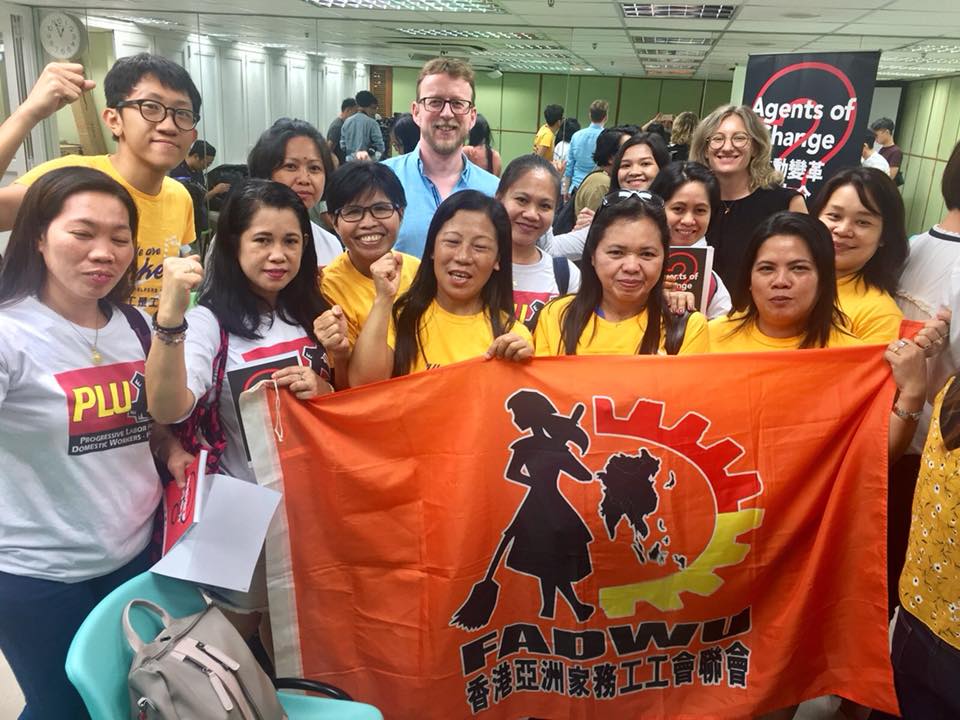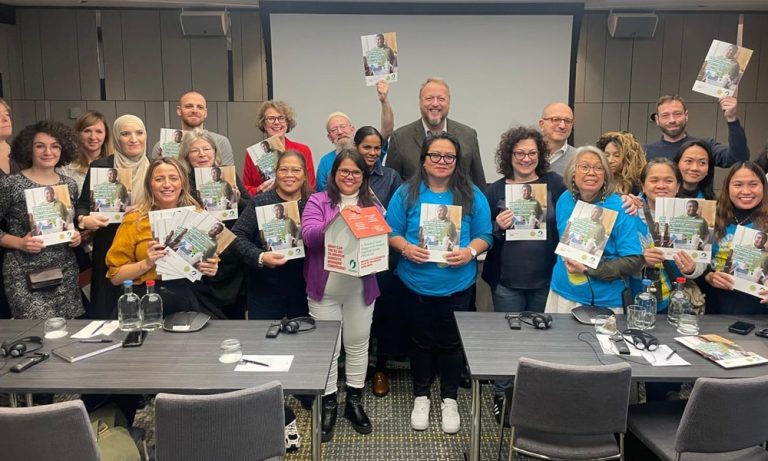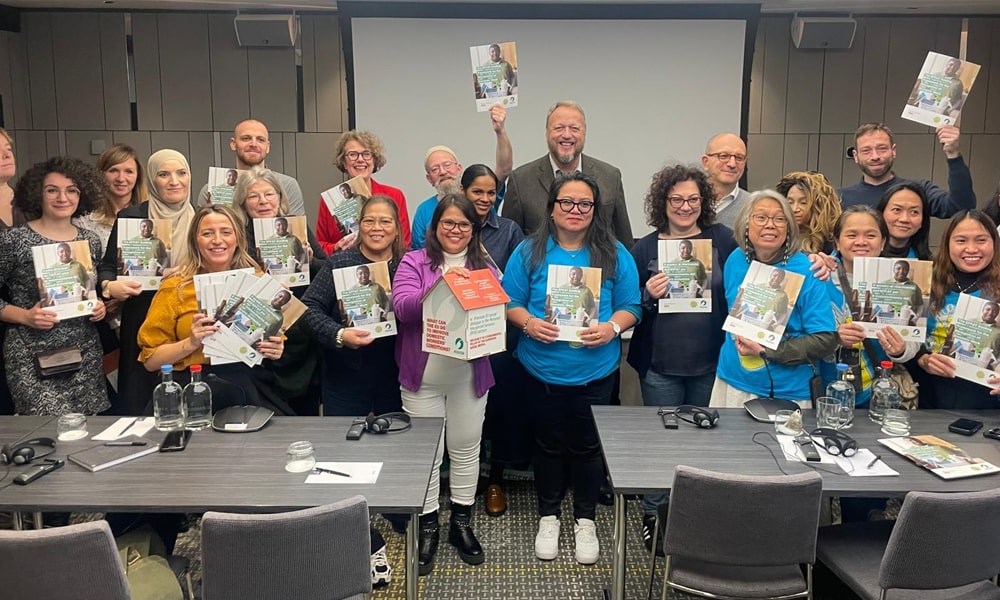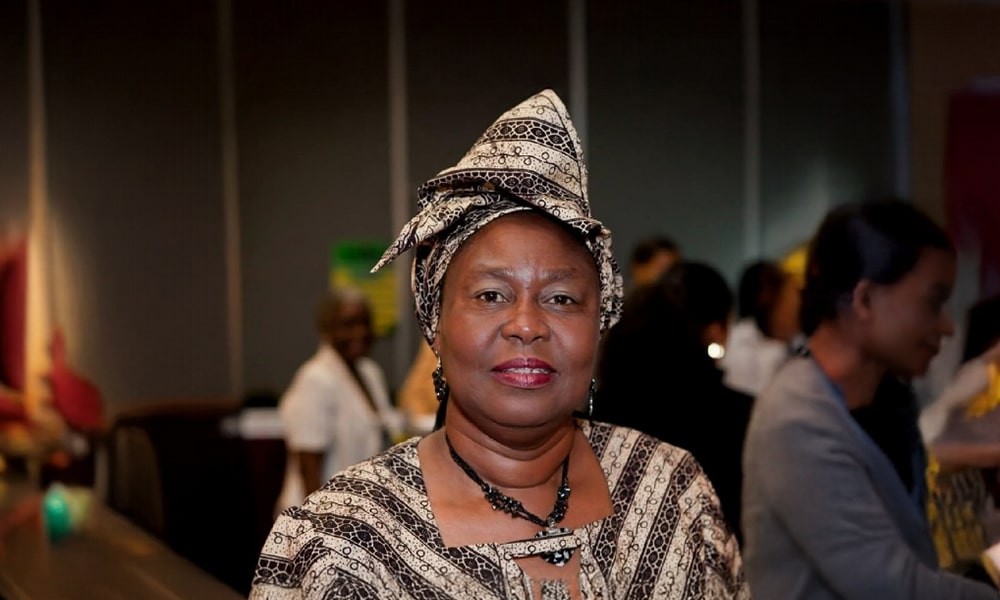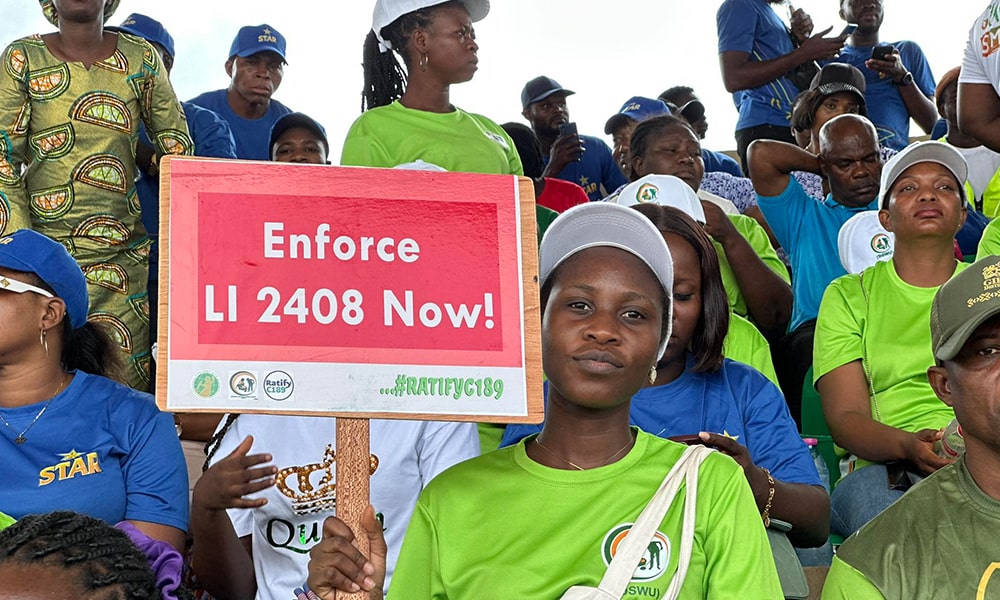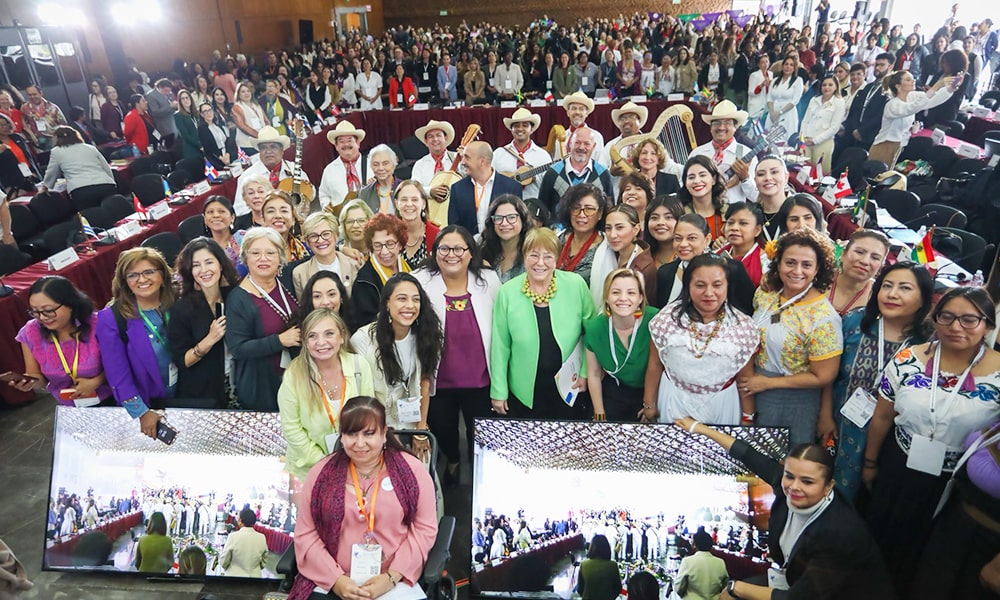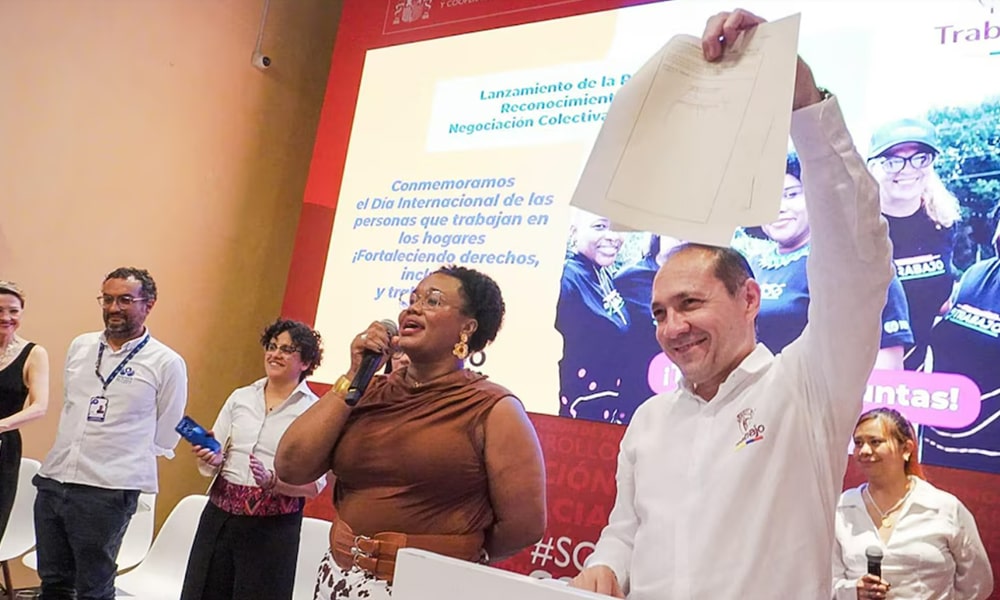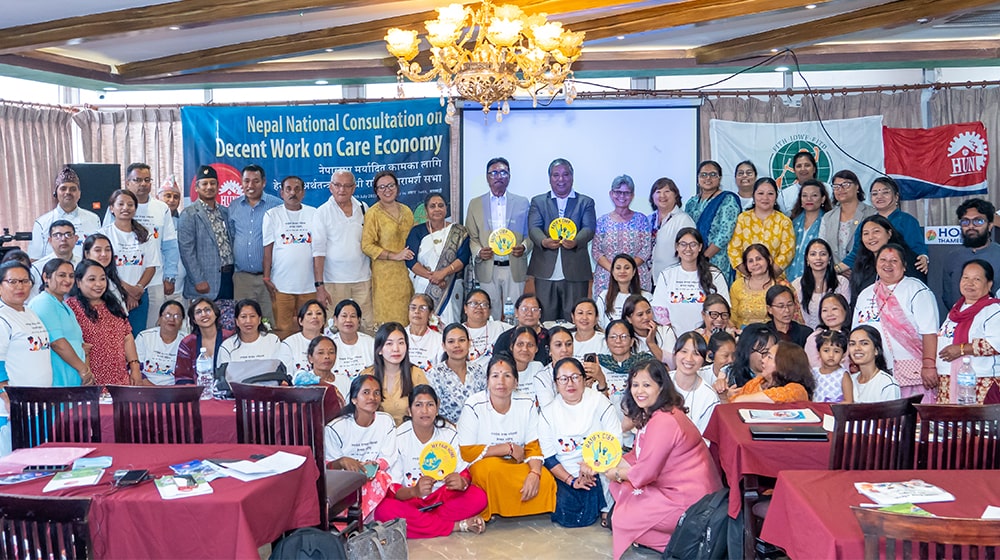The new report, Agents of Change? Assessing agency compliance with the Code of Practice, is based on interviews with 452 migrant domestic workers between July 2017 and March 2018. It shows that the Hong Kong government’s Code of Practice for Employment Agencies* is being widely flouted by agencies, leaving migrant domestic workers at risk of abuse and exploitation.
Details
Today the Hong Kong Federation of Asian Domestic Workers (FADWU) published a new report Agents of Change? Assessing Hong Kong employment agencies’ compliance with the Code of Practice.
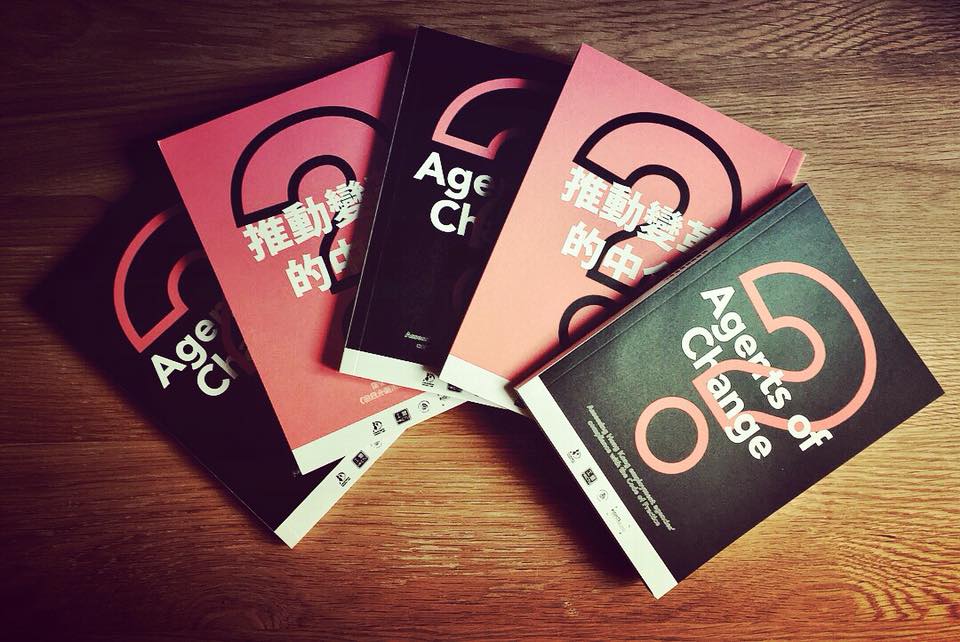
Migrant domestic workers in Hong Kong continue to face exploitation
as employment agencies fail to comply with government’s new Code of Practice
PRESS RELEASE
17 June 2018
Research published today shows that the Hong Kong government’s Code of Practice for Employment Agencies* is being widely flouted by agencies, leaving migrant domestic workers at risk of abuse and exploitation.
The new report, Agents of Change? Assessing agency compliance with the Code of Practice, is based on interviews with 452 migrant domestic workers between July 2017 and March 2018. It was produced by the Hong Kong Federation of Asian Domestic Workers Unions (FADWU) in collaboration with Komunitas Buruh Migran – Hong Kong (KOBUMI).
The report looks at specific components of the Code of Practice designed to protect the rights of migrant domestic workers. Its findings reveal that 96% of employment agencies used by interviewees did not comply with key aspects of the Code. It also found that 56% of interviewees were charged illegal fees, with newly arrived migrants paying agency fees averaging HK$9,013
(US$1,154)—more than 20 times the legal permitted maximum.
FADWU also conducted undercover video recordings in which staff from seven agencies stated that they would charge between HK$3,500 to HK$10,000 (US$448 to US$1,280) for job placement, which is 8 to 20 times over the legal limit. Despite the widespread assumption that migrant domestic workers know the conditions they will be working under, 31% of interviewees discovered that they had been given inaccurate information by their agency regarding the nature of their job. This included their terms and conditions and the cost of securing employment.
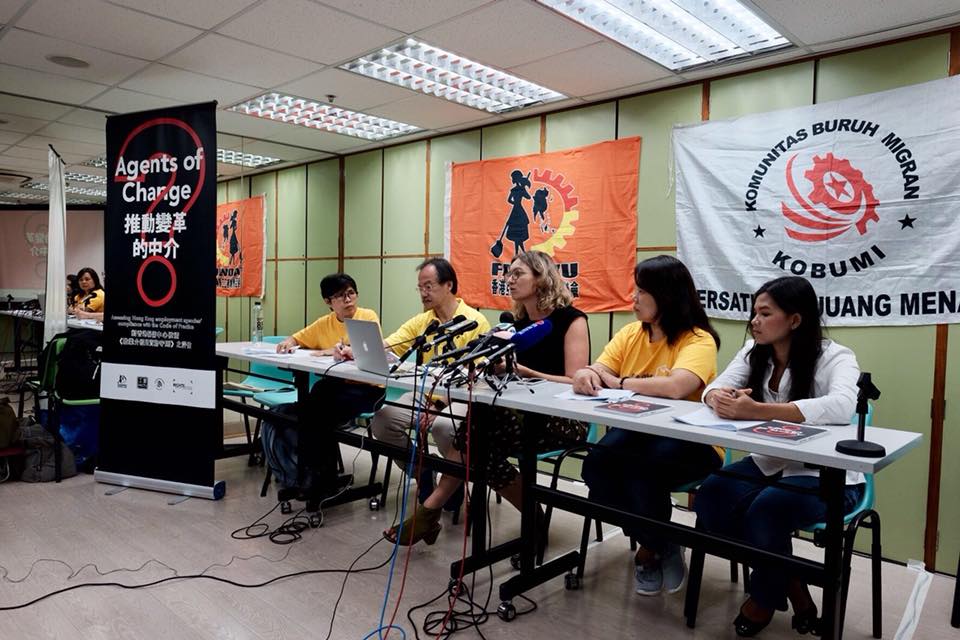
“Non-compliance with the Code of Practice is not confined to a few rogue agencies, but rather a widespread problem throughout Hong Kong. Our research documents that 148 registered agencies —10% of the total number* —violated one or more aspects of the Code”, said Phobusk Gasing, Chairperson of FADWU.
The report also documents that 24% of interviewees had their personal documents—mainly passports and contracts—taken from them. In 72% of these cases, this was done by their employment agency, clearly showing that the confiscation of essential documents is still used as a mechanism of coercion.
“Many employment agencies know they can largely ignore the CoP and continue to follow illegal business practices because they have little fear of reprisals. As the problem is so pervasive, migrant domestic workers have little choice but to go along with the demands of these unscrupulous agencies”, said Gasing.
The report highlights that the vast majority of employment agencies, which violate the Code of Practice, are able to do so with impunity. In 2017, the Labour Department convicted a mere 11 agencies for breaking the law. Similarly, only 19 agencies were given written warnings for noncompliance with the Code, despite FADWU’s research showing that the vast majority of employment agencies were not fully compliant.
“Unless the Labour Department strengthens its monitoring and inspections system, and effectively investigates and punishes non-compliant employment agencies, the Code of Practice will remain toothless and ineffectual in protecting the rights of migrant domestic worker,” said Gasing.
*The Code of Practice for Employment Agencies was introduced by the Hong Kong Labour Department in January 2017. A full copy can be found at: https://www.eaa.labour.gov.hk/_res/pdf/CoP_Eng.pdf
*According to the latest government figures, there are 1,439 licensed employment agencies in Hong Kong providing placement services to migrant domestic workers.
Background
The Hong Kong Federation of Asian Domestic Workers Unions (FADWU) is the only registered trade union federation of domestic workers in Hong Kong organising local and migrant domestic workers. It is an affiliate of the Hong Kong Confederation of Trade Unions (HKCTU) and International Domestic Workers Federation (IDWF). Its current affiliates include the Hong Kong Domestic Workers General Union (HKDWGU), Thai Migrant Workers Union in Hong Kong (TMWU), Union of Nepalese
Domestic Workers in Hong Kong (UNDW), Overseas Domestic Workers Union (ODWU), and Progressive Labor Union of Domestic Workers in Hong Kong (PLU).
Komunitas Buruh Migran – Hong Kong (Migrant Workers Community, KOBUMI-HK) was established in November 2014. As a trade union with predominantly Indonesian membership, KOBUMI-HK organises migrant workers in Hong Kong, as well as family members of migrant workers in Indonesia.
Notes for editors
The full report is available to view online
The media video is available, watch it here
For further information or to arrange an interview, please contact:
Phobsuk Gasing (Dang) / Chairperson of FADWU (Cantonese/ English/ Thai)
Email: fadwu.hk@gmail.com
